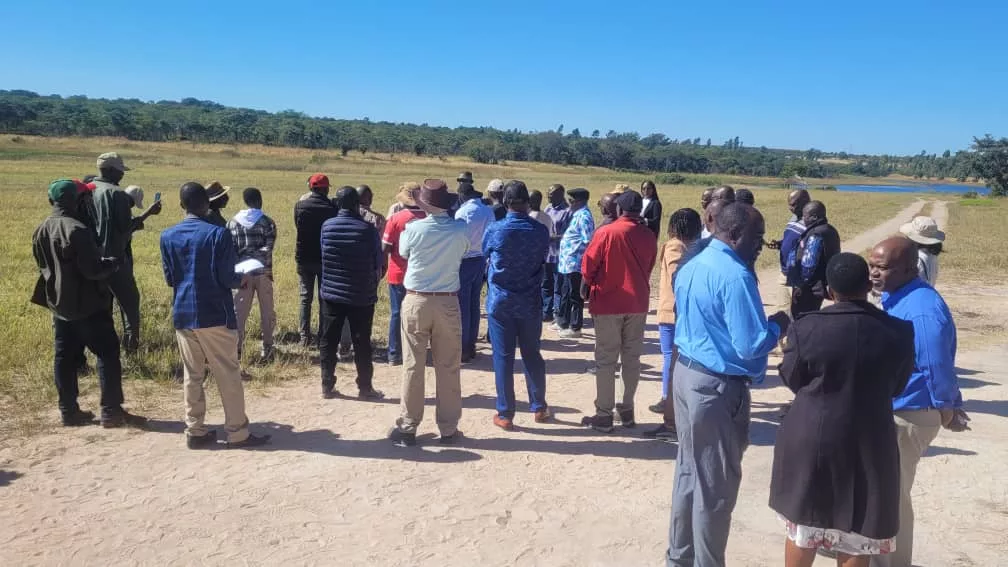ZANU (PF)’s Youth League Deputy National Political Commissar, Taurai Kundishaya, in his personal capacity, has urged the Parliament of Zimbabwe to establish a Social Media Regulation Board and Content Moderation Standards.
In a letter addressed to the Clerk of Parliament, Kandishaya submitted a comprehensive proposal for the establishment of a dedicated Social Media Regulatory Board, along with specific Content Moderation Standards, for the esteemed Parliament of Zimbabwe’s consideration.
“The ever-evolving landscape of social media and its increasing impact on our society underscores the pressing need for a specific legislative and regulatory framework. The current legal landscape, including the Freedom of Information Act, Cyber and Data Protection Act, and constitutional provisions, lacks the precision required to effectively address the unique dynamics of social media.
“Enclosed with this letter, you will find a detailed policy brief that outlines the rationale, objectives, and potential benefits of establishing a Social Media Regulatory Board. Additionally, the proposal emphasizes the importance of clear Content Moderation Standards to guide responsible use, protect users, and foster a harmonious coexistence of traditional and digital media,” Kundishaya said.
The young politician said in the rapidly evolving landscape of technological progress, Zimbabwe finds itself standing at a pivotal crossroads, grappling with the absence of a dedicated legislative and regulatory framework for social media.
“The intricacies of emerging technological trends have laid bare the inadequacies of current laws, including the Freedom of Information Act, Cyber and Data Protection Act, and constitutional provisions, as they lack the specificity required to navigate the dynamic terrain of social media.
“Social media, encompassing influencers, broadcasters, and diverse user-generated content, demands a nuanced and focused approach distinct from traditional media regulation. The existing legislative frameworks fall short, emphasizing the pressing need for a comprehensive and specific legal and regulatory framework exclusively dedicated to this burgeoning domain.”
He added that attempting to vest oversight responsibilities in current bodies like the Postal and Telecommunications Regulatory Authority or the Media and Information Commission risks inefficiency, given that the social media dynamic necessitates specialized attention. Thus, this policy brief advocates for the establishment of a dedicated Social Media Regulatory Board, emphasizing the urgency of creating a unit solely devoted to overseeing and regulating social media activities.
“This proposal seeks to underscore social media’s integral role within the media ecology, deserving regulatory attention equal to that of traditional media. By crafting a distinct framework for social media governance, Zimbabwe can effectively navigate the complexities of the digital landscape, ensuring responsible use, safeguarding user rights, and promoting a harmonious coexistence of traditional and digital media.’
He said reflecting on the recent summons of Facebook CEO Mark Zuckerberg by the U.S. Congress sheds light on the critical issues faced in the realm of social media.
“Concerns related to cyberbullying, explicit content dissemination, including nudity and child pornography, and the potential influence on issues like child labor and substance abuse underscore the imperative for proactive regulation and oversight. This experience emphasizes the necessity for Zimbabwe to establish a dedicated Social Media Regulatory Board to address these challenges, creating a safer and more responsible digital environment for its citizens.”
This is not the first time that Kundishaya made news headlines. In April of 2022, Kundishaya threatened to invade award-winning journalist, Hopewell Chin’ono’s village goat project that he claimed to belong to ZANU (PF) youth.
Members of the opposition political parties camped at Chin’ono’s village home to protect the goat project from invasion.
There were no comments from the Clerk of Parliament and the Minister of ICT, Honourable Tatenda Mavetera, by the time of going to press.






